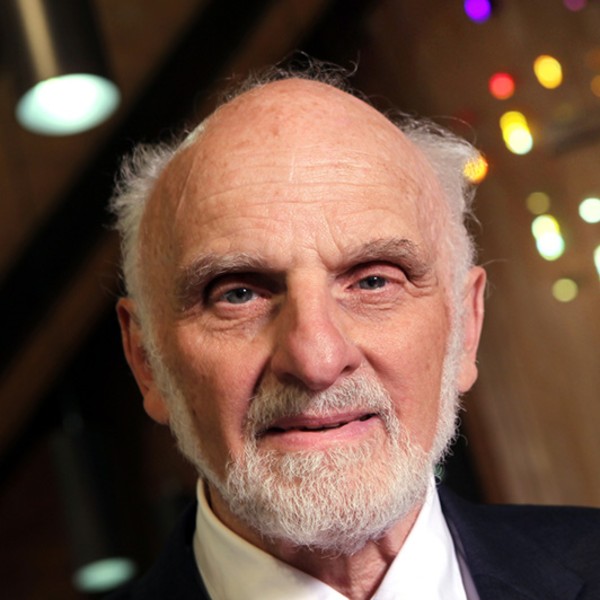In the essay “Men and Women in Search of Common Ground,” Wendell Berry tells a story about walking with Land Institute founder Wes Jackson amid experimental farm plots. Some plots had been planted densely; in others the flowers were farther apart. Jackson stopped at one Maximilian sunflower that was growing on its own, separated from the others in its field. Jackson pointed to the lone sunflower and said, “There is a plant that has ‘realized its full potential as an individual.’”
The flower had grown very tall, with lots of branches full of blossoms. But the branches had gotten so heavy and long they’d broken. “The plant had indeed realized its full potential as an individual, but it had failed as a Maximilian sunflower,” Berry writes. “We could say that its full potential as an individual was this failure. It had failed because it had lived outside an important part of its definition, which consists of both its individuality and its community. A part of its properly realizable potential lay in its community, not in itself.”
Human beings are communal creatures: we are made for community. A part of our properly realizable potential rests in our community, and not merely in ourselves. Just as the Maximilian sunflower in Berry’s story could not live rightly without the protection, nurture and restraint offered by its neighbors, neither can we have a coherent identity or even an existence apart from the other people and creatures that surround us. We would truly have no story without our parents, families, friends, neighbors, co-workers and even enemies, all of whose lives shape us and live within us. Our daily lives would be chaos without the structure and care of the communities -- the neighborhoods, institutions, organizations, schools, businesses, governments and churches -- that provide the contexts for our days.
The flower and the field are one. Every human soul (as Berry has written elsewhere) is a convocation.
The communal essence of human life is not only spiritual truth but biological fact. Pastor and author John Ortberg points to a study of 7,000 people that found that “the most isolated people were three times more likely to die than those with strong relational connections.”
Without community, not only could we not go on living, but in the deepest sense, we would not even exist in the first place. Every time we see the reminder of our bellybuttons we recall that we did not create ourselves but came to be only through the coming together of two human beings.
The first chapter of Genesis describes God as creating humankind “in his image” -- “in the image of God he created them; male and female he created them” (NRSV). Christian interpreters have read in these words a confirmation that human beings have been created to be in loving relationship with God and one another. They have seen a hint in these words that to be created in God’s image means to live together as a reflection of the Trinitarian life in community that is shared in God among the Father, the Son and the Holy Spirit.
One of the most important words in the New Testament is the Greek word koinonia. Koinonia is translated as fellowship, participation, sharing or communion. Koinonia is what the Christian community shares with “the Father” (1 John 1:3), with “his Son, Jesus” (1 Corinthians 1:9), with the Holy Spirit (2 Corinthians 13:13) and with each other (Acts 2:42). The Christian community is a continuum of communion, or koinonia. The creation of such divine koinonia can perhaps even be described as God’s ultimate purpose of salvation. The ultimate end of the reign of God is “abounding koinonia” among Creator, creatures and creation.
The term “leadership” is unintelligible apart from such an understanding of community. Leadership never exists on its own: it is a derivative term that has meaning only in the context of a particular community or community of communities, among a group of people who share a common experience in a common effort on a common ground to which they willingly belong.
Such communities are as much organism as they are organization. Even as they include formal structures and processes and strategies, they also live by a kind of biological, organic logic. When such a community is fulfilling its created purpose, when all its parts are working together in concert, it too, like the community that is the human body, can be healthy. But a community, just like an individual organism or a small child, also can suffer from the medical condition “failure to thrive.” Often the causes of such a communal “failure to thrive” are similar to those that keep a child from growing and maturing properly: poor nutrition (no influx of nourishing ideas, experiences and persons), poor parenting practices (bad leadership), lack of economic resources, emotional stress or the presence of some defect in the community’s “DNA.”
The task of leadership is to nurture such a community to a place of health: to enable it to thrive and to fulfill its created purpose.
The ultimate test of a leader, then, lies not in the realization of the leader’s full potential as an individual but in the faithfulness and health of the community that results from his or her leadership.
Writing to the Corinthian Christians, Paul compares the final effectiveness of a leader to that of a builder whose structure will be tested by fire on the day of final judgment. He writes, “The fire will test what sort of work each has done. If what has been built on the foundation survives, the builder will receive a reward. If the work is burned up, the builder will suffer loss; the builder will be saved, but only as through fire” (1 Corinthians 3:13-15).
The strength of the community itself, as well as its faithfulness to God’s will, will be the standard of success. Later, Paul expresses a similar sentiment when he writes again to the Corinthians and suggests that they themselves, the community, are his “letter of recommendation”: “Surely we do not need, as some do, letters of recommendation to you or from you, do we? You yourselves are our letter, written on our hearts, to be known and read by all; and you show that you are a letter of Christ, prepared by us, written not with ink but with the Spirit of the living God” (2 Corinthians 3:1-3).
Leadership is a craft that partners with God in the creation of beloved community in God’s image. The ultimate test of such leadership is the kind of community produced by that leadership. The community under our care is our “letter of recommendation.” The flower can thrive only to the extent that the field surrounding it thrives. The individual builder will be saved -- but only as through fire.









